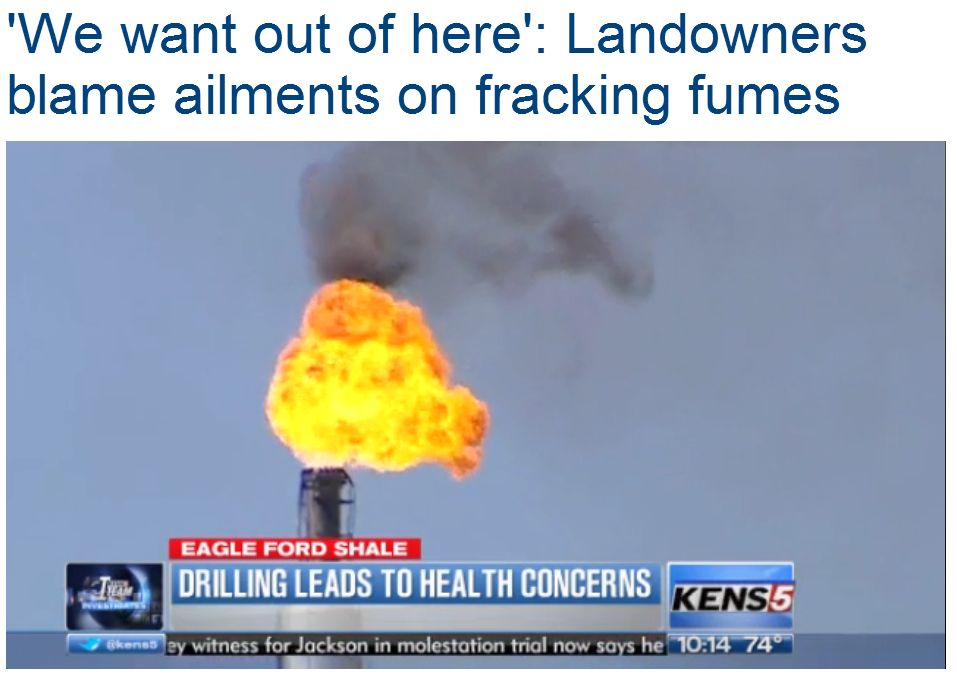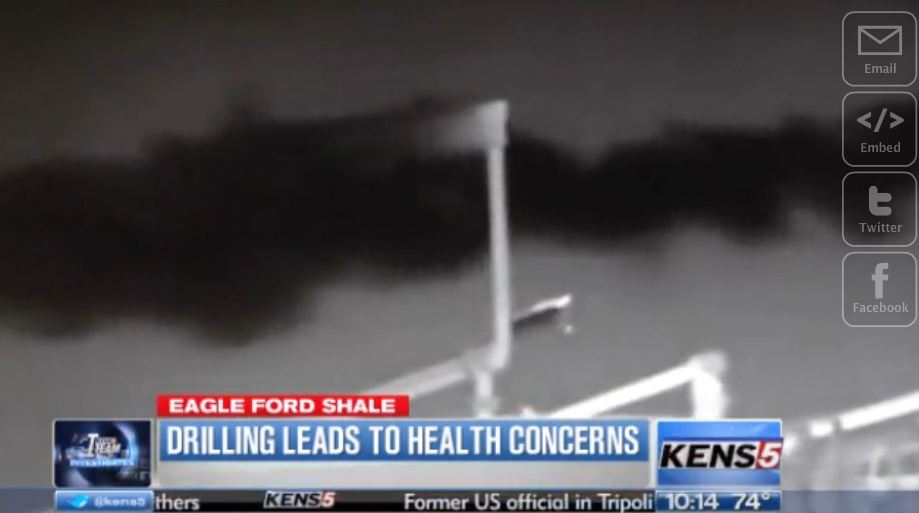Coming to sites across the UK soon – fracking flares, IGas chief warns that any production of shale gas would involve ‘flaring off’ leakages by Tom Bawden, May 9, 2013, The Independent
The British countryside could be dotted with hundreds of naked flames several metres high after the head of Britain’s biggest fracking company warned that any production of shale gas would involve “flaring off” leakages. Andrew Austin, whose IGas company’s shale gas licences cover George Osborne’s Tatton constituency in Cheshire, said flaring was necessary because it was extremely bad for the environment to allow methane leakages to escape into the atmosphere. “Flaring is the normal thing in standard oil fields, that’s why when you fly across the North Sea you can see it. Flaring or not flaring is not the point, it is industry practice,” Mr Austin told The Independent. “It is far better to flare leaked gas than to let it vent into the atmosphere. Methane emissions are 24 times more potent a greenhouse gas than C02,” he added. Other fracking companies, such as Cuadrilla, chaired by former BP chief executive Lord Browne, are also expected to flare off any leakages relating to their shale gas activities in the UK.
However, green campaigners argue that flaring is nonetheless environmentally hazardous, producing carbon dioxide, as well as noise and light pollution. Mr Austin’s admission will heighten the controversy already surrounding shale gas production, which relies on a technique known as fracking, or hydraulic fracturing. This releases the hydrocarbons by blasting a mixture of water, chemicals and sand into the shale and has already been linked to earthquakes and water pollution. The government banned fracking for just over a year, after the first hydraulic fracturing in the UK was quickly found to have caused two significant earth tremors in the Blackpool area. However, the moratorium was lifted recently after the government concluded it was safe to continue the practice, as long as it was under close supervision. Although fracking is now well established in the US, shale gas production is very much in its infancy in the UK. Only one company – Cuadrilla – has carried out any fracking so far and that has been limited to exploratory drilling in Lancashire. IGas will become the second UK company to begin drilling for shale gas this summer when it begins exploratory drilling at two sites, Irlam in Greater Manchester and Ellesmere Port in Cheshire. If the test drilling is successfully, IGas, the UK’s biggest shale gas licence holder, hopes to begin fracking at the sites next year.
Mr Osborne has high hopes for Britain’s shale gas industry, which he hopes can provide the UK with a cheap and secure supply of energy. He announced tax breaks in his recent budget to kickstart a fracking boom and hinted at financial incentives to help local communities overcome their opposition to projects. Some 32,000 square miles, or 64 per cent of the British countryside, could potentially be exploited for shale gas, covering vast swathes of the South of England, the North-west and Northeast and the Central belt in Scotland. However, huge uncertainty remains over how much shale gas Britain has and, more importantly, how much of it can be commercially extracted, in the face of opposition from local communities and the country’s high population density. Joss Garman, Greenpeace’s political director, said: “That fracking could mean hundreds of gas-flares burning across the countryside is more bad news for the communities likely to be impacted by George Osborne’s dash for gas.” The additional environmental concerns around fracking prompted by the flaring revelation came on the same day as Prince Charles launched an attack on climate change sceptics for turning the earth into a “dying patient”. In a speech to ministers and tropical forest scientists, he called on world leaders to “act now” to protect the rainforests, arguing that action was needed because the risk of doing nothing was “too great”. [Emphasis added]
[Refer also to:
‘We want out of here’: Landowners blame ailments on fracking fumes by Joe Conger, May 8, 2013, KENS 5
“That’s all I can think. Death,” the worried mother said. “Seeing our son die maybe before us. That’s all you can think.”


